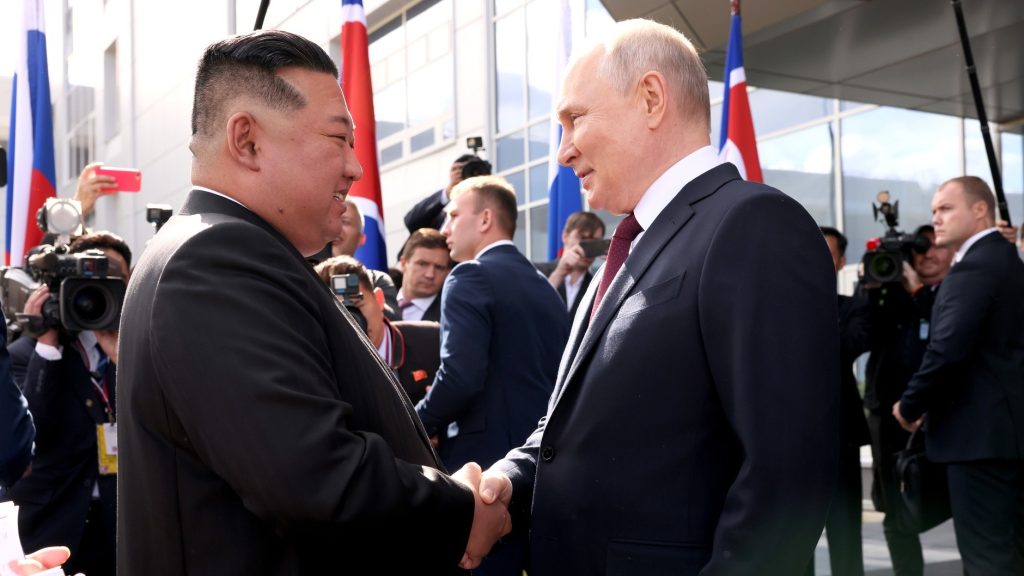It has now come to light that the deployment was not Putin’s idea.
Others are reading now
Wars often bring unlikely alliances, and the ongoing conflict in Ukraine is no exception.
As Russia continues its military campaign, alliances with nations like North Korea have grown increasingly significant.
These partnerships offer critical resources and manpower, illustrating the importance of global ties in sustaining prolonged conflicts.
Recent reports have revealed that North Korea has taken an active role in supporting Russia’s war efforts.
Also read
Not Putin’s Idea
Around 12,000 North Korean troops have been deployed to the Kursk region since August, fighting alongside Russian forces, according to Digi24.
Initially seen as a sign of Kremlin desperation, it has now come to light that the deployment was not Putin’s idea.
U.S. intelligence, cited by The New York Times, has disclosed that the proposal came from North Korean leader Kim Jong-un, who offered the troops to Moscow, a suggestion Putin quickly embraced.
Ukrainian President Volodymyr Zelensky recently stated that over 3,000 North Korean troops have been killed or injured in Ukraine, a number that far exceeds earlier estimates.
This revelation underscores the heavy toll North Korea is willing to bear in its partnership with Russia.
The collaboration between North Korea and Russia goes beyond soldiers. Pyongyang has also supplied Moscow with military equipment, including artillery shells and ballistic missiles.
In December, The Wall Street Journal reported that North Korea had delivered 20,000 containers of weaponry to Russia and was preparing more shipments.
For North Korea, this alliance strengthens its geopolitical influence, allowing it to trade military resources for technological advancements and global recognition.
For Russia, North Korean support fills gaps left by its extended war, providing much-needed reinforcements and ammunition.
This growing partnership is deepening ties between the two nations, both heavily sanctioned and isolated by the international community.
While beneficial in the short term, the alliance carries risks.
North Korea’s involvement in a major conflict could lead to harsher sanctions, while Russia’s reliance on unconventional allies underscores its increasing isolation.


